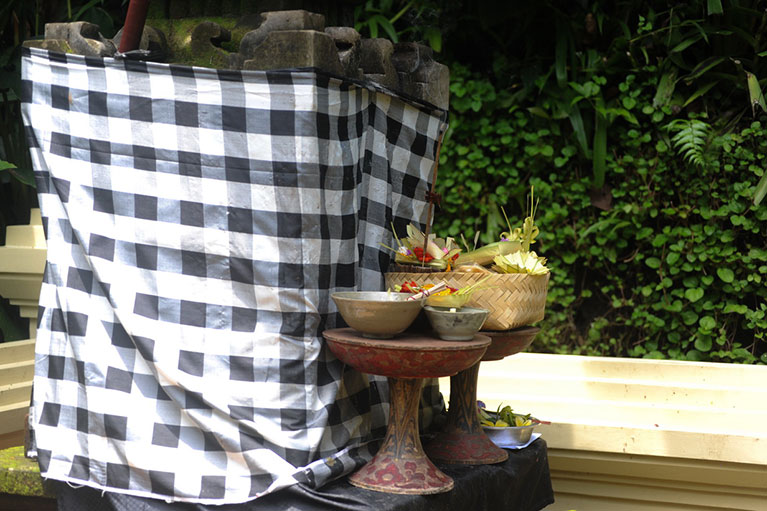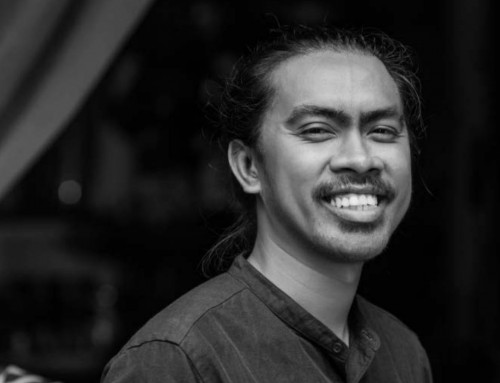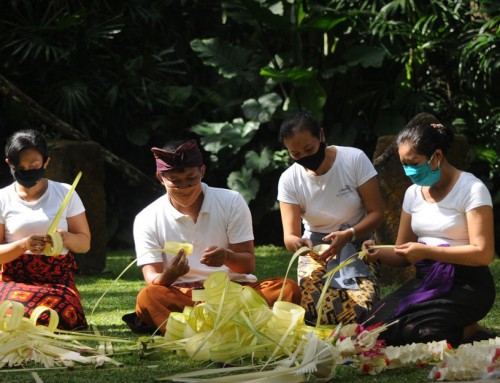The ancient Balinese believe in mutual dualism, which is the idea that two opposite things depend on each other to exist. They teach that there is no joy without sorrow, no night without day. They simply understand that there will always be good and bad in the world and in everyone.
This is the core tenet of Rwa Bhineda, a philosophy that’s embedded in everyday life in Bali. Just as the Chinese people have Yin and Yang, Rwa Bhineda is basically a manifestation of the universe’s balance in Balinese Hinduism.
This principle is often represented by the black and white pattern of the saput poleng. Saput poleng (saput means ‘blanket’, and poleng means ‘two-toned’) is Balinese traditional black-and-white checkered textile, which can be easily found all over the island; wrapped around large tree trunks, draped over rocks, tucked in statues and shrines, or used in ceremonies as banners, umbrellas, or part of traditional costumes.
Rwa Bhineda encourages tolerance and appreciation of opposites and differences. In addition, Balinese are taught not to suffer too long in despair, for there will always be joy to balance it (and also to be careful not to celebrate joy too excessively, for it will eventually be balanced by sadness). Differences must be embraced in order to create harmony and balance.
Therefore, opposites must be balanced in order to create harmony since the saput poleng indicates the coexistence of opposites.
By reflecting on Rwa Bhineda, one can soon see that sorrow is also part of happiness, and can accept both sorrow and joy as God’s gift.













Leave A Comment